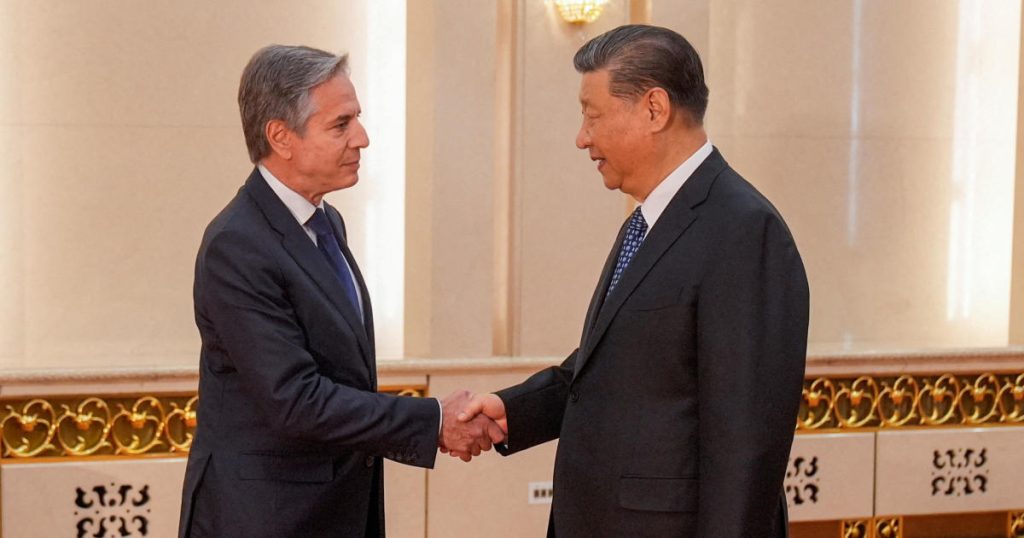US Secretary of State Antony Blinken recently met with Chinese President Xi Jinping and other senior Chinese officials to address growing tensions between the two countries. Discussions focused on the importance of maintaining open lines of communication in order to prevent misunderstandings and miscalculations. Despite increasing differences on various issues such as Taiwan, the South China Sea, trade, and human rights, both sides expressed a commitment to stabilizing the relationship.
During the talks, Chinese Foreign Minister Wang Yi emphasized the need to move forward with stability rather than descending into further conflict. He urged the US to respect China’s core interests and not interfere in its internal affairs. Blinken acknowledged the difficulties in the US-China relationship but stressed the importance of face-to-face diplomacy to address differences and avoid misunderstandings. He reiterated the US commitment to standing up for its interests and values, including human rights and economic issues.
Blinken’s visit to China coincided with President Biden signing a substantial foreign aid bill that includes provisions aimed at countering Chinese aggression towards Taiwan and in the South China Sea. The bill also includes funding for Ukraine to defend itself against Russia’s invasion, a move that China has opposed. Beijing has criticized US support for Taiwan and efforts to force the sale of TikTok, a popular social media platform owned by a Chinese company. The aid package underscores US concerns about China’s actions in the Indo-Pacific region.
China’s close ties with Russia have also been a contentious issue, with the US accusing China of enabling Russia’s military aggression through economic support. Discussions between Blinken and Chinese officials likely included the topic of China’s relationship with Russia and the implications for global security. Russia’s President Vladimir Putin’s upcoming visit to China in May further highlights the importance of addressing the dynamics between these key players in the international arena.
Despite the challenges facing the US-China relationship, both sides have expressed a willingness to engage in dialogue and work towards stabilizing their interactions. Maintaining clear and direct communication on areas of disagreement is seen as vital in order to prevent misunderstandings and miscalculations that could escalate tensions. The ongoing discussions between the two countries reflect a recognition of the complexities involved in managing the relationship and the need for ongoing diplomacy to navigate these challenges.
The strategic importance of US-China relations, particularly in the Indo-Pacific region, underscores the significance of finding common ground while addressing differences. Both countries recognize the need to balance their respective interests and assert their positions on key issues. By engaging in constructive dialogue and emphasizing areas of cooperation alongside areas of disagreement, the US and China aim to navigate a path forward that promotes stability and addresses mutual concerns. The complexities of the US-China relationship highlight the need for continued engagement and dialogue to manage conflicts and promote peaceful coexistence in the global arena.


